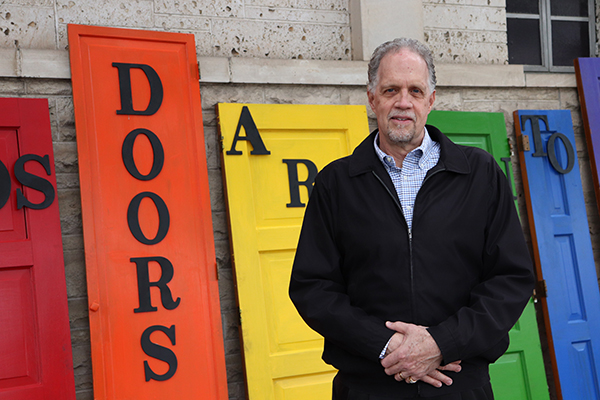The on-campus University United Methodist Church said they will not go along with the national denomination’s recent vote to uphold the ban on LGBTQ clergy and same-sex marriage within the church.
The United Methodist Church called a special general conference Tuesday in St. Louis to decide the extent of its LGBTQ inclusivity. The church voted 438-384 to pass The Traditional Plan, which strengthens accountability and punishment for LGBTQ clergy and clergy who perform same-sex marriages, giving churches until 2021 to make these changes.
“This decision resolves a long-standing debate about how we can best accomplish our mission of making disciples of Jesus Christ for the transformation of the world,” United Methodist Church Bishop Scott Jones said in a statement.
University church senior pastor John Elford said the recent decision goes against Methodist teachings on acceptance.
“It creates a second-class citizen in the church,” Elford said. “It’s like you’re not a full Christian, and you can’t do all the things that the rest of us can do. We think that’s wrong.”
Elford said he has been speaking to local pastors about resisting this decision. He plans to perform same-sex marriages in the University church, even if it will result in the suspension of his clergy order.
“I don’t want to continue participating in what I think is a systemic evil in these rules, but I need to bring my church along in dialogue so … we are all okay with me being in direct active resistance to the church’s laws,” Elford said.
The church reached out to LGBTQ congregants to let them know the University church supports them. However, students like William Alexander, who identifies as gay, said the plan will change his relationship with the Methodist denomination because it no longer represents his values.
“Nothing will change with my church because I know that the people there love me and value me for who I am,” said Alexander, a transportation engineering graduate student. “It makes it harder to call myself a Methodist. I still hold Methodist values at heart, but it means that the organization that is purported to sustain Methodism has become poisoned. It is no longer its true self.”
Theater and dance sophomore Kaci Pelias, who identifies as lesbian and queer, said she was conflicted when she found out about the general conference’s vote, but remains hopeful about the direction of her congregation and other churches.
“The way the congregation reacted has been really good, which makes me very confused as to why the plan passed,” Pelias said. “I don’t know if it’s just the churches that I surround myself with, but it’s been an overwhelmingly hopeful, encouraging and resistant response.”
Reverend Teresa Welborn, the church’s capitol district superintendent, was elected as one of four delegates to represent the Rio Texas area, which includes Austin, at the special general conference. She said she voted in favor of the One Church Plan, which would allow LGBTQ clergy and same-sex marriages within the church.
“The decisions caused a lot of continued harm for members of the LGBTQ community and for people who love them and who are their allies,” Welborn said. “I’m sitting here talking about this subject and I’m a cisgender white female, and so leaders in lots of areas of our society have a lot to learn still about talking with people and having them at the table rather than just talking about.”




















